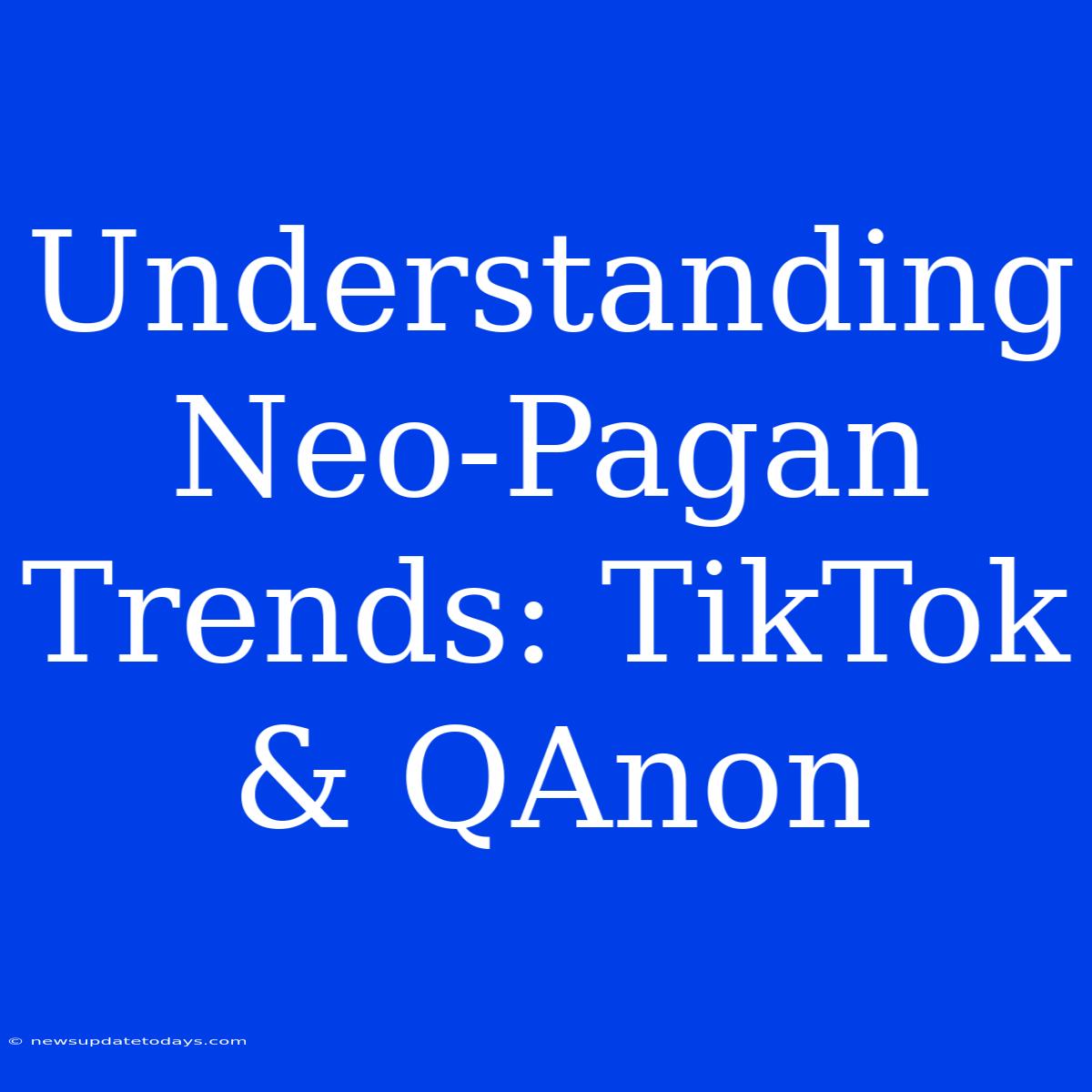Understanding Neo-Pagan Trends: TikTok & QAnon's Unexpected Intersection
The digital age has revolutionized how spirituality and belief systems spread, with platforms like TikTok becoming unexpected breeding grounds for diverse ideologies. This article explores the fascinating, and sometimes unsettling, intersection of Neo-Pagan trends and the QAnon conspiracy theory on TikTok. We'll delve into how these seemingly disparate groups interact, the implications for both communities, and the larger societal context of online radicalization.
The Allure of Neo-Paganism on TikTok
Neo-Paganism, encompassing a wide array of nature-based spiritualities, has found a fertile ground on TikTok. Its visually appealing rituals, emphasis on personal expression, and focus on community resonate with young audiences seeking alternative spiritual paths. Hashtags like #wicca, #pagan, and #witchtok boast millions of views, showcasing spell-casting, tarot readings, and discussions of various pagan traditions.
- Visual Appeal: TikTok's short-form video format is perfectly suited to showcasing the aesthetic aspects of Neo-Paganism—intricate altar setups, beautiful nature photography, and mesmerizing ritual practices.
- Community Building: The platform fosters a sense of community among users, allowing like-minded individuals to connect, share experiences, and support each other on their spiritual journeys.
- Accessibility: TikTok democratizes access to spiritual information, providing a platform for diverse voices and perspectives within the Neo-Pagan community.
QAnon's Influence: A Dangerous Convergence
However, the openness of TikTok also exposes Neo-Pagan spaces to the infiltration of harmful ideologies, particularly QAnon. While seemingly disparate, QAnon's conspiratorial worldview, emphasizing hidden symbols and secret knowledge, can resonate with certain aspects of Neo-Pagan beliefs. This creates a fertile ground for misinformation and potentially dangerous interpretations.
- Symbolism and Interpretation: QAnon frequently employs coded language and symbolism, which can be misinterpreted or deliberately twisted to align with Neo-Pagan imagery and rituals. This can lead to the conflation of unrelated concepts and the adoption of QAnon's narratives within Neo-Pagan communities.
- Misinformation and Disinformation: QAnon proponents may utilize the platform to spread misinformation disguised as spiritual wisdom, exploiting the trust inherent in online spiritual communities. This can lead to the acceptance of false narratives and harmful practices.
- Erosion of Trust: The infiltration of QAnon can erode trust within Neo-Pagan communities, creating division and suspicion. The spread of misinformation undermines the credibility of genuine practitioners and weakens the integrity of established traditions.
Navigating the Complexities: Critical Engagement and Responsible Content Consumption
The coexistence of these diverse and often conflicting ideologies on TikTok necessitates a critical approach to content consumption. It is crucial to:
- Verify information: Always check the reliability of sources before accepting information as truth. Be wary of accounts promoting conspiracy theories or engaging in misinformation.
- Practice discernment: Develop the ability to distinguish between genuine spiritual practices and harmful ideologies masked as spirituality. Be critical of claims that seem too good to be true.
- Support responsible creators: Promote creators who prioritize accurate information, ethical practices, and a respectful community environment.
The convergence of Neo-Paganism and QAnon on TikTok highlights the complexities of online communities and the challenges of navigating the spread of misinformation. By fostering critical thinking, promoting responsible content creation, and supporting genuine practitioners, we can work towards a more informed and safer online spiritual space.

